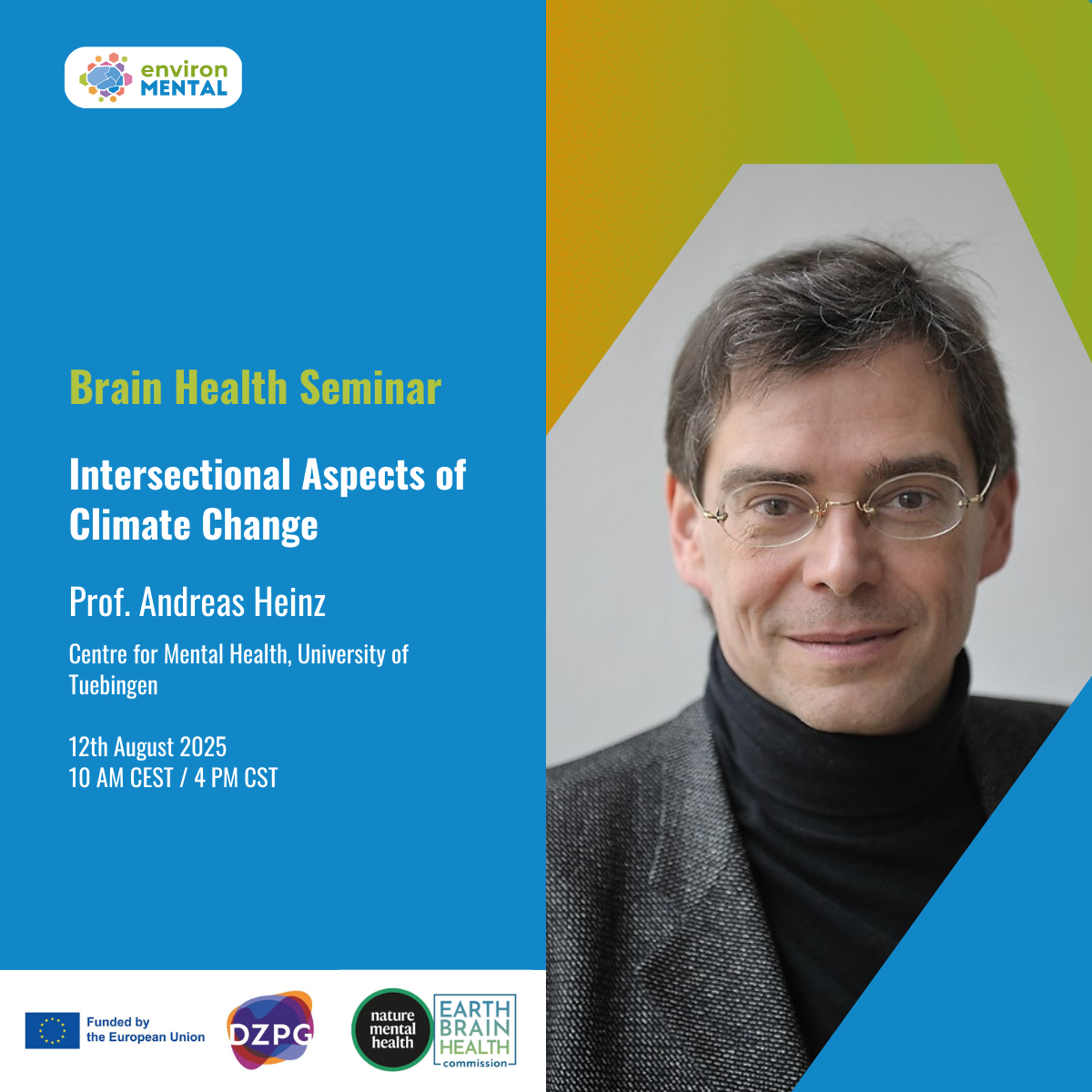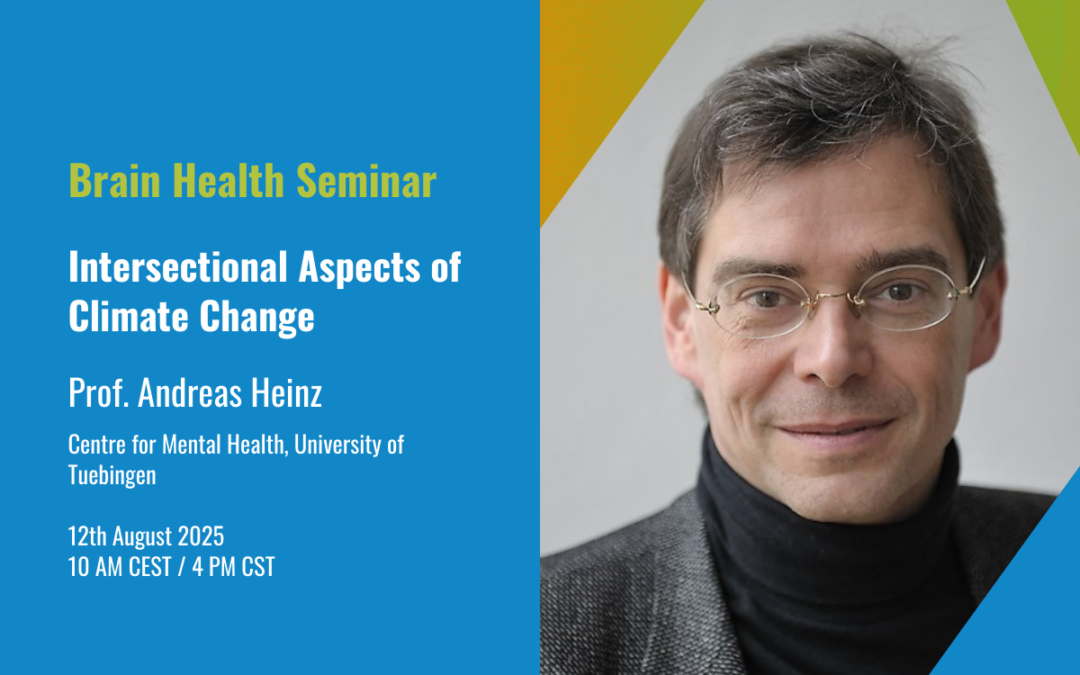
Intersectional aspects of climate change
Speaker: Prof. Andreas Heinz
Dept. of Psychiatry and Psychotherapy, University of Tuebingen, Germany
Date: 12 August 2025, 10.00am CET/4.00pm CST
Abstract: Climate change has direct, indirect and intersectional effects on mental health. Direct effects include traumatization by natural disaster. Indirect effects include enforced migration due to loss of agricultural space. Intersexual effects address, the interaction of poverty, sexist and racist and other forms of social exclusion and discrimination. Resources to cope with negative effects of climate change are in equity distributed. For example, heat islands in urban centers often occur in areas that lack green space and access to rivers, which are inhabited by less affluent parts of the population. Neighbourhood studies revealed that local poverty is associated with an increased mental health burden and coincides with increased air pollution and traffic noise, which have been associated with somatic disorders and can further impair mental health. Preventive strategies should not only focus on the individual but also on the community and social levels.
Biography: Andreas Heinz, MD PhD, is a senior professor at the Center for Mental Health at the University of Tübingen, Germany. He was a speaker of the German Center for Mental Health (DZPG) 2023-2025, of the Collaborative Research Grant Transregio 265 2018-2022 and of the German Psychiatry Organization (DGPPH) 2019-2020. He studied medicine, philosophy, and anthropology at the Ruhr Universität Bochum, the Freie Universität Berlin and at Howard University, Washington DC. His work focuses on learning mechanisms in mental disorders effects of social exclusion, and intercultural psychotherapy.


